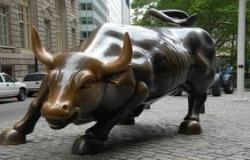Like everything in this Government, the Government’s celebration for the specific drop in inflation in May will be more than limited. After knowing the data of 4.2 percent of the retail price index compared to May, economists and consultants anticipate a significant rebound for June, given that last month’s decline was based on the retraction of regulated services, others that remained flat and a dollar that continues to fall behind; an unsustainable combo in the long term. Private estimates predict that the impact of adjustments in rates – electricity, gas and transportation – and other regulated prices, together with the impact of the increase in fuel prices, will result in inflation for June of around 6 and 6.5 percent.
The INDEC reported this Thursday that the consumer price index showed an increase of 4.2 percent in May, being the lowest record of the year and of the administration of Javier Milei, after in December it reached the record of 25 percent as a result of the exchange rate jump applied in the first days of management, of 118 percent. In the year-on-year comparison, retail inflation is 276.4 percent year-on-year, reported the INDEC. Unregulated services were above the monthly average. The division with the greatest increase in the month was Communication (8.2 percent), due to increases in telephone and internet services. It was followed by Education (7.6 percent), due to increases at all educational levels, and Alcoholic Beverages and Tobacco (6.7 percent) due to the increase in cigarettes.
We do this project collectively. Support El Destape with a click here. Let’s continue making history.
SUBSCRIBE TO THE DISCOVERY
Economist Enrique Szewach assured that the drop in inflation that was recorded in May hides “some artificial things”, such as rates and prepaid payments that did not increase that month, but did so in June.. There is clearly a downward trend in inflation, but with some artificial things, such as rates that must be adjusted and prepaids that will return to their value. We are in a context where inflation of 4.2 percent per month is celebrated, but that percentage is what neighboring countries have in a year,” highlighted the economist, former member of the Mediterranean Foundation.
In this way, June could be considered, in the best of cases, as a pivotal month due to the impact of the postponed tariff increase and some signs of rebounds in food prices. However, the possibility of an exchange rate correction, whatever its nature, above the guideline of 2 percent monthly appreciation of the dollar – used as an inflationary anchor – could lead to a new, longer-term inflationary acceleration.
The first inflation data for the current month force us to be cautious with this possibility given that adjustments in public service rates will impact and food prices started with some rebound. The food item in May had an increase of 4.8 percent, above the general average. The consultant LCG measured that in the first week of June food was stable, but in the second they registered an increase of 1.5 percent, which in the “end-to-end” measurement of the four weeks gives an increase of 4.8 percent. hundred.
“In addition, in June the increases in transportation (subways in the City of Buenos Aires, in mid-May and another adjustment in June), gasoline, and electricity and gas (adjustments in the generation part, with transportation and distribution still suspended) will be computed. ) and, again prepaid,” warned the consulting firm LCG. The report also clarifies that “the notable slowdown in inflation is explained by the collapse in demand and by the appeal (again) to the use of the exchange anchor as an anti-inflationary measure.” “We continue to maintain that the true test to see if we enter a new regime of lower inflation will have to be done with activity rebounding and salaries reducing the decline of recent times. Only then will we be able to see if inflationary expectations are really anchored,” explains the consultant. In this case, the question is whether the consumption floor has already been reached and, eventually, that of the self-inflicted recession by Javier Milei’s government.
In June the Government advanced in the transition scheme to remove subsidies from residential users in the middle and low sectors. According to private calculations, the bills could increase by 100 percent and will have an impact on the inflation numbers for this month and in the following ones. Nicolás Alonzo, economist at Orlando J. Ferreres & Asociados (OJF), indicated that, “as a reference, a 100 percent increase in electricity adds 0.35 points to the CPI, while a gas increase of the same magnitude adds 0.91 points.” Fausto Spotorno, director of OJF & Asociados, had anticipated a few days ago that the consulting firm’s survey showed that the first week of June ended with an inflation of 5.5 percent compared to the five weeks of May. .
An analysis of the consulting firm EcoGo measured a food increase of 0.5 percent in the first week of June, which would show a monthly increase of 4.1 percent. Despite this, general inflation for the month would rise to 6.1 percent, according to the preliminary estimate. “The increase compared to the previous month responds to the increases registered in regulated services – which were frozen in May -, highlighting the increases in gas, electricity, water, fuel and prepaid rates,” says the consulting firm directed by economist Marina Dal Poggeto. .
To this must be added the second round effect of tariff adjustments on prices because they increase the production costs of other goods and services and the adjustment in fuels on logistics costs. For the Government, gasoline and diesel should increase another 20 percent to reach international prices. From the consultancy ACM They consider that it will be difficult for inflation to continue downward: “There are several mechanisms that lead to thinking that the June figure will be higher than that of May. The removal of subsidies for services such as electricity and gas or the update of the tax on fuels will directly impact next month’s CPI”.
The measurement carried out by the Latin American Economic Research Foundation (FIEL) In the City of Buenos Aires, the increase in prices in the first week of June was placed at 3.8 percent. Of that total, they highlighted, 1.2 points correspond to increases in electricity and gas rates. “Regarding the first week of May, prices grew 7.1 percent and 299.7 percent compared to a year ago. The largest weekly increase corresponds to Regulated (10.8 percent), highlighted FIEL. The Market Expectations Survey (REM) of the Central Bank showed its new estimates for inflation during 2024. According to the more than 40 consulting firms that participate in this report, the June price index will close with an increase of 5.5 percent. hundred.






